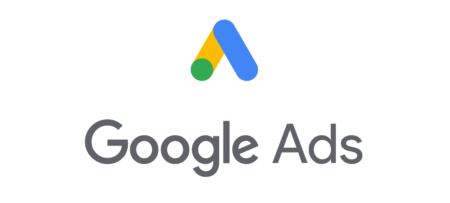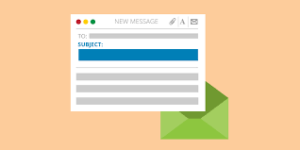Google Ads is a platform that is constantly undergoing new changes and improvements.
New features are constantly being added and old features are being taken away, sometimes to the annoyance of experienced Google Ads veterans. But more often than not there is a method behind Google’s madness.
The cynics will say that many of the changes are implemented to make Google more money, and I don’t doubt this is true, but they do also make our lives as marketers and PPC account managers easier.
Here are some of the things Google recommends you should be doing:
1. Smart Bidding
Smart Bidding strategies use Google’s machine learning and a number of different data points and signals to set your bids automatically for each auction.
Or as Google puts it:
Smart Bidding is a set of conversion-based bid strategies that use advanced machine learning to help you tailor the right bid to each and every auction. It factors in a wide range of auction-time signals including device, location, time of day, remarketing list, language and operating system, to capture the unique context of every search.
You can choose from a variety of different smart bidding options depending on what your campaign goal is.
- Target ROAS allows you to set a target return on ad spend that you would like to achieve
- Target CPA allows you to set a target conversion/acquisition cost.
- Maximise conversions will try to get you as many conversions within your allocated budget.
- Maximise conversion value will attempt to get the maximum conversion value of your campaign within your specified budget.
You must define your conversion values such as sales, subscriptions, etc when you set up conversion tracking on your website.
Pros of Smart Bidding
- Saves you time
No more need to waste valuable time doing manual bid adjustments! Instead, you can use that time to work on more valuable parts of your business or marketing strategy.
- Makes use of Google’s powerful algorithms and machine learning
Google has a ton of data and will use signals relating to device, time, etc to set the bids in real-time to achieve your set campaign goals
- Easy to set up
Adopting smart bidding is easy and doesn’t take much time to set up. Automation is now a big thing on the Google Ads platform, and you will see more and more features becoming automated with time, and going with the tide is a lot easier than swimming against it.
- Makes use of your historical data
If you have a large amount of data you will benefit from smart bidding more than if you are running a relatively new account with little or no conversion data (this is especially true when using conversion-based smart bidding strategies).
Using smart bidding is a good way to make the most out of all your hard-earned data, and to capitalise on it to improve the performance of your campaigns.
Cons of Smart Bidding
- Overall your costs will go up
Google always advises allowing up to two weeks for the “learning process” to be complete. This is the period of time when Google learns about your campaign and how to best optimise your bids to achieve your campaign goals.
In my experience, this learning phase always results in an increase in spending, and the returns are not always justified. Even when this initial learning period (which typically lasts two weeks) is over, you may find that your CPC has increased. With more and more people now adopting smart bidding, this gives Google the opportunity to inflate CPC’s across the board, resulting in lower margins for you, and more cash for Google.
- Lack of transparency
With Google uniquely bidding on each individual search query, advertisers no longer have any access to the complete bid history of a keyword or any individual auction.
Keyword-level CPCs do not accurately reflect auction dynamics as the bids for each search query can be wide-ranging, even for the same keyword. The result is that the CPC for a given keyword acts as the average of all the unique bid auctions, and that is the most information that will be available at your fingertips. If you’re an advertiser who analyses your performance data on a granular level, the possibilities to do so are limited here.
- Lack of control
Using smart bidding essentially means handing the reins over to Google, thus taking control out of your hands.
You will typically know more about your own business than Google, who will be relying purely on historical conversion metrics rather than an in-depth understanding of your market to make bid decisions. Using such a generic approach that relies solely on data without any real understanding of your actual business is risky, and makes some advertisers uneasy about adopting smart bidding.
- Some strategies need sufficient data volume to work
Certain smart bidding strategies rely on a sufficient volume of data in order to achieve the set campaign objective. This can be frustrating if you are using a new account or haven’t had what Google considers to be the required amount of conversions within a certain period of time.
2. Responsive Search Ads
Another feature that uses automation, RSAs allows you to create up to 15 different headlines and up to 4 different descriptions. Once you have created the various fields, Google will test different combinations to see which performs best. This allows for a mind-blowing possible 43,680 different permutations!
Pros of RSAs
- Saves you time
You will save a ton of time from having to constantly create new ads. You can create your new headlines and descriptions and let Google decide which combinations to show.
- You can pin certain headlines and descriptions so they always show in certain positions
This feature allows you to dictate which headlines you want to always appear in every combination, and in what position e.g. headline 1 or headline 2.
Cons of RSAs
- You cant currently see which combinations are performing best
You can see which combinations were shown most, but the ad performance data (impressions, clicks CTR, conversion rate) is amalgamated into one number. This means you can have a great combination that is outperforming all the other ads by far, but frustratingly Google won’t let you know this.
Having spoken to many different Google account managers about this, they always state that this is something many advertisers have asked for and that the development team may be in the process of adding to the platform. But I guess it’s not in Google’s best interest to do this as savvy marketers will take the best combinations and turn them into standalone Extended Text Ads.
- Some of the combinations and headlines may not work well together
This means unless you use the pin feature, you have to make sure that all 15 headlines and 4 descriptions make sense when used in any possible combination – not an easy task!
3. Dynamic Search Ads
DSAs are search campaigns that don’t use keywords. Instead, you tell Google which website, landing page or feed to crawl, and Google extracts the necessary information from that source to know which search queries are relevant enough to show ads for.
DSAs also use dynamically created ads – this means information on the headlines is pulled directly from the site or feed. The only element you have to create is the description fields.
Pros of DSAs
- Easy to set up
DSA’s are super quick and easy to set up.
- There’s no keyword research to be done
Because they don’t use keywords, you don’t have to worry about doing keyword research, match types, or bids.
- Can help you find relevant keywords that you’re not targeting
You can plug the gap between the keywords you have on your account and any you may be missing, without having to add every possible search term.
This means if you are missing relevant keywords and search terms, Google will still be able to pick up on those lost searches and show your dynamic ads.
- Ad creation is made super easy
All you have to do is provide the description and Google will take care of the rest.
- Your ad headlines will be super-targeted and relevant to the search query
This should result in a higher CTR and a higher ad rank, which should lower costs over time.
Cons of DSAs
- Lack of control
This means you have to constantly monitor the search terms report and add negatives to prevent your ad from showing in irrelevant auctions.
- Headlines may not match the description
Because Google pulls the data straight from your website, the ad headlines may not always make sense or match the generic description field. This can be frustrating if you want to have tight control over your brand and what type of message is shown.
- Your costs may go up as you are entered into irrelevant auctions
You have to keep a close eye on these dynamic search campaigns to make sure you don’t spend on irrelevant auctions. Because Google uses only the webpage or feeds you have provided, you have to make sure there isn’t any irrelevant information on those pages that Google thinks is relevant.
You have to pick your webpage or feed very carefully to avoid this or pre-scan it to make sure it is the best source to select.
- Low-performing search queries with high volume may eat up your budget
Again, you have to monitor the search terms report closely to make sure your budget is not being wasted on low-quality search terms.
Summary
Automation is a big thing and something that Google is clearly moving more and more towards.
Each new change to the Google ads platform seems to be one involving automation, and whilst this has its positives you can’t help but feel that Google is taking more control away from advertisers.
I think some of the new features such as smart bidding and dynamic search ads are great for people that are new to Google Ads and who are not experienced advertisers as they allow you to set up new campaigns and get started with PPC advertising very easily.
But, if you’re someone who has used the platform for a while and who enjoys having granular levels of control over every aspect of your campaigns then it can be frustrating to have that control taken away, on an ever-increasing scale.
One thing is certain, automation is here to stay and will be increasing, with more features being added that take advantage of machine learning and Google’s huge data sets.
Savvy marketers will adopt a balanced approach, and use a mix of manual and automated features to get the best of both worlds.




